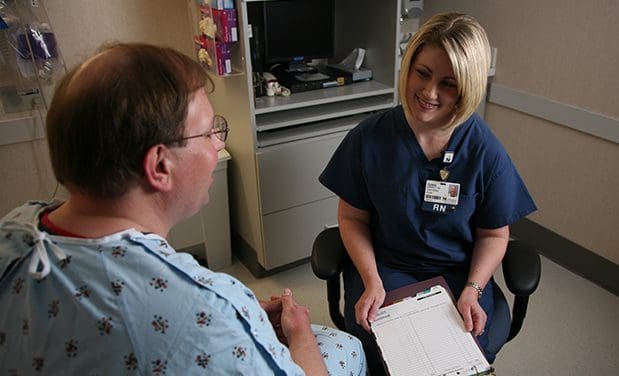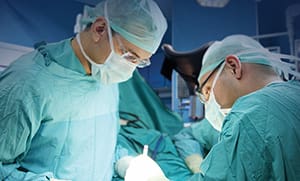Colon Surgery

There’s no need to fear your colonoscopy. Because if additional procedures are needed, Memorial is here to get you back to normal faster.
Enhanced Recovery After Surgery (ERAS) is a method of treatment to help you recover from intestinal surgery. This program looks at the entire surgical process—from the first meeting with your surgeon through recovery—to help you get back to normal digestive function as soon as possible.
Benefits
Research shows that patients treated with an ERAS approach recover faster and have fewer complications. In most cases, multidisciplinary care also improves outcomes and allows you to recover and go home sooner.
Three Phases of Surgery
Preoperative
Education is very important to the ERAS method. Starting in your surgeon’s office, you will discuss a number of issues.
- Quitting smoking and not drinking alcohol are important in reducing the risks of surgery, anesthesia risks, and breathing problems after surgery. If you can quit smoking and drinking before surgery, it is beneficial.
-
Unlike with traditional surgery, you can drink clear liquids until a couple hours before surgery. Clear liquids are drinks that you can see through which include:
- Water
- Tea or coffee – without milk or cream
- Sprite, 7-Up, ginger ale, or Mountain Dew
- Plain Jell-O – not red, no fruit
- Popsicles – not red or purple
- Bouillon – without particles
- Gatorade – not red or purple
- Drinking carbohydrate drinks before surgery can decrease nausea and vomiting and reduce the stress of surgery.
Intraoperative
During the operation, your surgeon will focus on minimally invasive procedures and using less narcotics. Minimally invasive surgery reduces your recovery time and discomfort. The anesthesiologist will look at alternatives to narcotics during surgery, because narcotics slow the function of the gastrointestinal tract, inhibit patients from getting up and around, and can decrease breathing. Epidurals or abdominal wall blocks for pain may be used instead.
Postoperative
After surgery, your care team will work with you to:
- Eat and drink soon after surgery.
- Get out of bed soon after surgery.
- Experience optimal pain control after surgery. Your surgeon and team also want to ensure you know exactly what will happen throughout your hospital stay until you go home.
Risks
The risks of this approach are no greater than the risks of traditional approaches to recovery from intestinal surgery.


